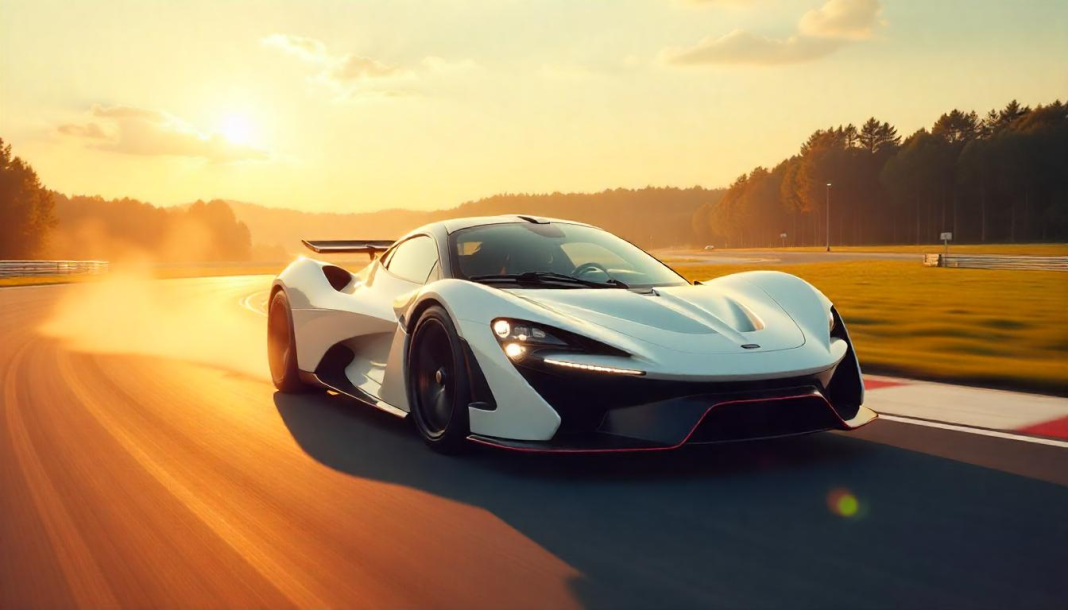The race for the title of the fastest car in the world continues to push the boundaries of engineering and technology. Hypercar manufacturers compete to create record-breaking vehicles capable of exceeding 300 mph (482 km/h). In 2025, advancements in aerodynamics, engine power, and hybrid technology have led to new contenders in the race for speed supremacy.
Let’s explore the fastest cars in the world today, including their top speeds, performance features, and engineering marvels.
1. SSC Tuatara
The SSC Tuatara, manufactured by Shelby Supercars (SSC), holds a world record for top speed. In 2023, the Tuatara achieved a verified speed of 295 mph (474 km/h) during a two-way average speed run. The car boasts cutting-edge aerodynamics and an incredible power-to-weight ratio.
Key Features:
- Top Speed: 295 mph (474 km/h)
- Engine: 5.9L twin-turbocharged V8 producing 1,750 horsepower
- Price: Over $2 million
The SSC Tuatara’s lightweight carbon-fibre construction and streamlined design make it a top contender for speed records.
2. Bugatti Chiron Super Sport 300+
Bugatti has long been associated with record-breaking speed, and the Chiron Super Sport 300+ lives up to that legacy. In 2019, it became the first production car to exceed 300 mph, reaching 304 mph (490 km/h) in a test run.
Key Features:
- Top Speed: 304 mph (490 km/h)
- Engine: 8.0L quad-turbocharged W16 producing 1,577 horsepower
- Price: Approximately $3.9 million
Bugatti’s focus on both luxury and performance makes the Chiron a blend of comfort and raw speed.
3. Koenigsegg Jesko Absolut
Swedish manufacturer Koenigsegg aims to claim the fastest car title with the Jesko Absolut. Though not yet officially tested at top speed, Koenigsegg engineers project it to reach over 330 mph (531 km/h), based on simulations and design.
Key Features:
- Projected Top Speed: 330+ mph (531 km/h)
- Engine: 5.0L twin-turbocharged V8 producing 1,600 horsepower
- Price: Estimated at $2.8 million
The Jesko Absolut is designed for speed with reduced drag and high aerodynamic efficiency, making it a strong contender for future speed records.
4. Hennessey Venom F5
The Hennessey Venom F5 is another American hypercar aiming to surpass 300 mph. Built by Hennessey Special Vehicles, the Venom F5 features a bespoke chassis and engine designed specifically for extreme performance.
Key Features:
- Top Speed: Estimated at 311 mph (500 km/h)
- Engine: 6.6L twin-turbocharged V8 producing 1,817 horsepower
- Price: Approximately $2.1 million
Named after the powerful F5 tornado, the Venom F5 is built to dominate the top-speed competition with its immense power and aerodynamic profile.
5. Rimac Nevera (Electric Hypercar)
While most of the fastest cars use powerful combustion engines, the Rimac Nevera is a fully electric hypercar that’s breaking records for EVs. It has achieved a top speed of 258 mph (415 km/h), making it the fastest electric car in the world.
Key Features:
- Top Speed: 258 mph (415 km/h)
- Power Output: 1,914 horsepower from four electric motors
- Price: Approximately $2.4 million
The Nevera accelerates from 0 to 60 mph in just 1.85 seconds, showcasing the rapid advancements in electric vehicle technology.
6. McLaren Speedtail
The McLaren Speedtail combines futuristic design with high-speed performance. While it may not hold the absolute top-speed record, it is McLaren’s fastest car, reaching 250 mph (403 km/h).
Key Features:
- Top Speed: 250 mph (403 km/h)
- Engine: Hybrid powertrain with a 4.0L twin-turbo V8 and electric motor, producing 1,035 horsepower
- Price: Approximately $2.3 million
The Speedtail’s streamlined, teardrop-shaped design maximises aerodynamic efficiency, allowing for exceptional high-speed performance.
7. Aston Martin Valkyrie
The Aston Martin Valkyrie is a hybrid hypercar developed in collaboration with Red Bull Racing. While its top speed of 220 mph (354 km/h) falls short of other cars on this list, the Valkyrie excels in track performance and aerodynamics.
Key Features:
- Top Speed: 220 mph (354 km/h)
- Engine: 6.5L V12 hybrid producing 1,160 horsepower
- Price: Over $3 million
With its Formula 1-inspired design and advanced engineering, the Valkyrie offers a unique blend of power and agility.
How Are Top Speeds Verified?
Top-speed records require stringent verification to be recognised globally. The process typically involves:
- Two-Way Runs: The car must complete two runs in opposite directions to account for wind and terrain conditions.
- Average Speed: The final top speed is calculated by averaging the two runs.
- Independent Verification: Organisations like Guinness World Records or automotive industry experts often verify these records using GPS and telemetry data.
What Factors Affect a Car’s Top Speed?
Achieving extreme speeds involves overcoming several challenges related to aerodynamics, power, and stability.
Key factors include:
- Engine Power: High horsepower engines provide the raw force needed to reach top speeds.
- Aerodynamics: Reduced drag and improved downforce help maintain stability and efficiency at high speeds.
- Weight: Lightweight materials like carbon fibre reduce the car’s overall mass, improving acceleration and handling.
- Tires: Specially designed high-speed tires are essential for withstanding extreme forces and heat.
Frequently Asked Questions (FAQs)
Q: What is the fastest car in the world in 2025?
A: The SSC Tuatara currently holds a top-speed record of 295 mph, but other contenders like the Koenigsegg Jesko Absolut and Hennessey Venom F5 aim to surpass it.
Q: Has any car exceeded 330 mph?
A: No production car has officially reached 330 mph yet. However, the Koenigsegg Jesko Absolut is designed to achieve this speed in future tests.
Q: Are electric cars competing in top-speed records?
A: Yes, the Rimac Nevera holds the record for the fastest electric car at 258 mph.
Final Thoughts
The quest for the title of the fastest car in the world continues to drive innovation in the automotive industry. While the SSC Tuatara currently holds the crown, fierce competition from brands like Bugatti, Koenigsegg, and Hennessey ensures that new records may be set in the near future. Whether powered by traditional engines or cutting-edge electric motors, these hypercars represent the pinnacle of speed and engineering excellence.

